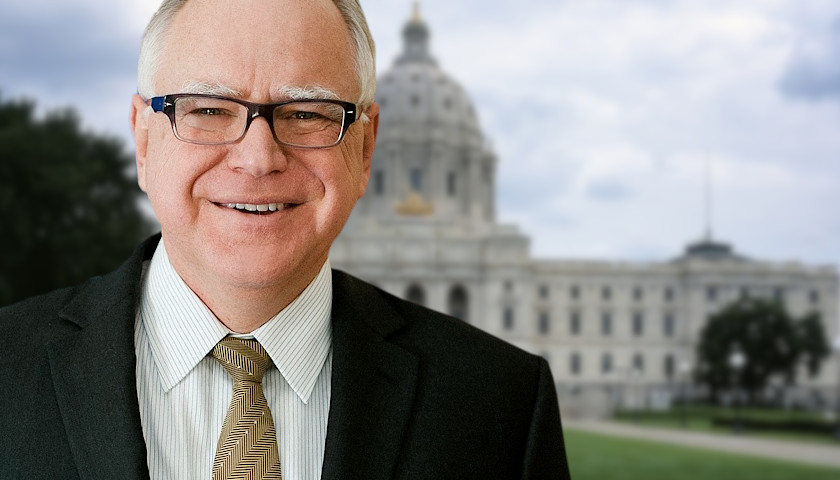by Steve Karnowski
MINNEAPOLIS, Minnesota (AP) — Gov. Tim Walz approved plans Thursday to distribute $841 million in federal coronavirus aid to cities and counties across Minnesota, along with another $12 million for food banks and food shelves that have seen a surge in demand since the pandemic hit the state.
The money comes from the $2.1 billion that Minnesota received under a sweeping federal economic rescue law known as the CARES Act. The state will distribute the $841 million to local governments according to a set of population-based formulas that lawmakers agreed to during last week’s special session, under a deal that later fell apart after House Democrats added other spending measures to the bill. The Democratic governor ultimately followed the original agreement as he used his executive authority to allocate the money by himself.
“This funding will bring much-needed relief to communities across the state as we continue to battle this pandemic together,” Walz said in a statement.
Senate Republicans had sought legislation spelling out the distribution formulas because the federal funds weren’t subject to legislative approval, so Walz had the authority to allocate them unilaterally and could have decided differently. His reliance on emergency powers to deal with the pandemic as he sees fit has been a sore point among GOP lawmakers, but the House Democratic majority blocked a move to cancel those powers.
Republican Sen. Julie Rosen, who led the negotiations for the Senate majority, welcomed the governor’s agreement to follow the deal on distributing the money, as did two influential groups that lobby for communities across the state.
“These are dollars our local communities need to address the growing financial burden from the costs of fighting COVID, along with lost revenue due to COVID,” Rosen said in a statement. “I’m very happy the funds are finally going to be fairly distributed to where they are needed.”
Communities can’t use the money simply to replace lost revenue, but they can use it to fill the holes in their budgets caused by unexpected spending arising from the pandemic.
“Cities set their budgets for 2020 last fall, long before the effects of the pandemic hit Minnesota. Since that time, cities have been forced to alter and modify their operations, purchase equipment and redeploy staff to address the challenges of maintaining essential services to residents,” David Unmacht, executive director of the League of Minnesota Cities, said in a statement.
Congress passed the CARES Act three months ago, and Minnesota cities and counties had been waiting since then for clarity on how much they would receive and when they would get it. The money will start going out next week.
“COVID-19 has had a major impact on every corner of the state — even the areas that have not been hit by a wave of cases — and this funding will help local governments continue to deal with the public health crisis and start to revive their local economies,” Audrey Nelsen, president of the Coalition of Greater Minnesota Cities and Willmar City Council member, said in a statement.
The state will use much of its share of the $2.1 billion to cover money it has already spent responding to the pandemic, but the governor allocated $12 million Thursday for food aid. His office said around 300,000 Minnesotans have visited food shelves each month since the pandemic began, about a 30% increase over normal. The state’s food banks are distributing approximately 2.4 million pounds of food weekly, up 20% to 40% since last year.
– – –
Steve Karnowski reports for the Associated Press.




